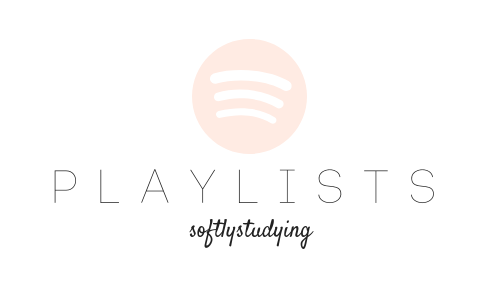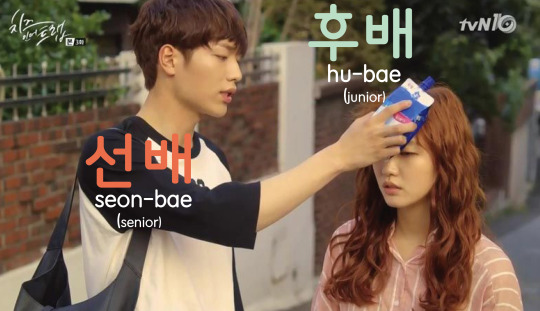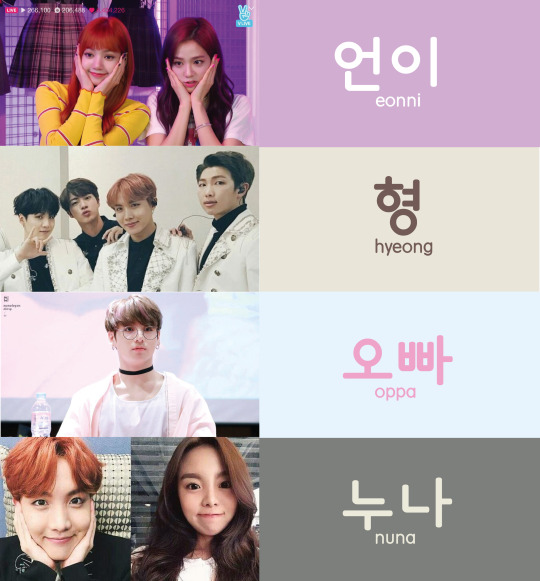사미 || learning in hopes of moving to korea || maybe i’m being too ambitious || intj
Don't wanna be here? Send us removal request.
Photo

i spend way too much time on spotify and thus have way too many playlists, but here are some of them as a thank you for 11k !!
neptune / soundtrack to a warm coffee on a sleepy afternoon
pluto / 3am, lying upside down off the bed with dim phone light on your face
saturn / laughter, pillow fights and intentionally bad singing-along
mars / quiet piano floats through the window on a warm, windy evening
lunar / during windows-down summer car rides with your friends
solar / fingers tracing on a thigh and quiet evening humming
jupiter / gentle, wordless, beats to see you through revision
eclipse / a soft voice paired with a guitar, and a cup of tea
earth / for dozing off amidst gentle yawns, wrapped in blankets
cosmos / a face amongst the crowd, stairs to the subway, city lights
galaxy / clink of glassware and muted murmurs amongst background jazz
sapph / for the girls who love girls
cappuccino / the feeling of a 9am coffee on a gently sunny morning
instagram
update ;; here is part 2!
16K notes
·
View notes
Text
favorite language learning resources
duolingo- a lot of language learners have issues with it but it’s good to get a base on the language and they’re always adding new languages!
memrise- good for vocabulary and memorizing, they have a wide list of languages
babbel- really effective if you want to learn how to communicate with people or get around, costs money for the full version but they have sales all the time
hellotalk- language exchange app, i’ve had really good experiences with this app, the only downside is that you have to pay to select more than one language you want to learn
tandem- similar to hellotalk, i like it slightly less but it allows you to choose as many languages as you want!
forvo- you can listen to native speakers pronounce things! it’s amazing!
ipachart- interactive chart with the international phonetic alphabet
wordreference- online dictionary for french, spanish, german, italian, portuguese, dutch, swedish, russian, polish, romanian, czech, greek, turkish, chinese, japanese, korean, and arabic
bab.la- another online dictionary with 24 languages
linguee- really great for learning phrases and seeing words in context
omniglot- encyclopedia of writing systems and languages, really great for learning new writing systems & also basic phrases! also has links to other resources!
the great language game- game for testing listening comprehension to several dozen languages!
ba ba dum- fun vocabulary game
easy languages- youtube channel featuring native speakers speaking a variety of languages but mostly spanish, french, and german
wikitongues- youtube channel attempting to document every language in the world
languagepod101- offers podcasts and youtube videos in a wide variety of languages
verbix- verb conjugating website with a wide variety of languages
quizlet- flashcard website that’s great for compiling vocab lists
lingq- i’ve only used it a little but it seems helpful especially for beginners!
tunein- allows you to listen to radio in a variety of languages
wikipedia- they have thousands to millions of articles in various languages so it’s a great place to test your reading skills, and in addition you can read articles about the language you’re learning and get a grasp on the language’s structure and sound system
lyricstraining- allows you to learn languages using song lyrics, really helpful for comprehension
lang-8- you can post things and have native speakers correct them, and correct things from other people!
feel free to add!
14K notes
·
View notes
Text
*:・°✧ how to introduce yourself in korean°
1. 이름이 뭐예요? whats your name? - 제 이름은 name이에요/예요 or 저는 name이에요/예요
~이에요 if ur name ends with a consonnant ~예요 if it ends with a vowel
♡
2. 어디에서 왔어요? where are you from? - country 사람이에요
examples : 프랑스 사람이에요 ; i am french 프랑스 ; france 사람 ; person
중국 사람이에요 ; i am chinese etc..
♡
3. 몇살이에요? how old are you? - age살이에요
examples : 17살이에요 ; i’m 17 years old 24살이에요, 14살이에요…
♡
4. 취미가 뭐예요? what are ur hobbies? - 노래하는 것을 좋아해요 i like singing
verb+는 것을 좋아해요
요리하는 것을 좋아해요 ; i like cooking 읽는 것을 좋아해요 ; i like reading 춤 추는 것을 좋아해요 ; i like dancing
♡
5. 학생+이에요 ; i am a student 고등학생 ; high schooler 대학생이에요 ; university student
OR
occupation이에요/예요 의사예요 ; im a doctor 선생이에요 ; im a teacher
♡
6. language를 공부해요 i study…. 프랑스어를 공부해요 ; i study french 영어를 공부해요 ; i study english
language를 배우고 있어요 i am learning…. 한국어를 배우고 있어요 ; i am learning korean 일본어를 배우고 있어요 ; i am learning japanese
♡ study well 💪💕🙋
7K notes
·
View notes
Text
Multiple Language Learning Methods: One Isn’t Going to Cut It
Hi guys! Thank you for your patience as I get adjusted in China and try to find time to update my studyblr! Between studying my languages and teaching, it’s been a bit of a struggle. But I’ve finally got situated enough to get on Tumblr and get to work on a new post that I’m excited to finally share with you!
How many methods do you use to study languages? If you say one, you’re probably studying wrong. When you were in grade school studying the alphabet, did you just read a textbook and BAM you knew the alphabet? OF COURSE NOT! As much as our parents and instructors would wish we did learn that easily, no one ever does! No one. The best way to learn something is to experience it in different ways, situations and formats. You listened to the alphabet spoken in class by your teacher, then by an audio cd, then on tv when you watched Sesame Street, then in a song at a babysitters house, then read them in a textbook, then maybe played computer games to help you practice on top of all that. You heard the same alphabet over and over in different contexts. I used to be a big fan of Between the Lions back in the day because they would teach you a letter then a few words, then use those words and letters over and over again in different skits during the show. If the word of the day was dig, then in the cartoon Cliff Hanger, Cliff would need to spell dig to figure out how to come down from the cliff (of course it never worked, but that’s besides the point), there would be a song with dig in it, there would be activities where you’d have to insert the missing letters, and then the lions themselves would get into situation where they would need to dig something and you’d learn the word dig AGAIN. You get the point. This stuff isn’t just for children. This stuff is gold for language learning as adults, so how do you tap into this knowledge? By giving yourself multiple methods of language study just like a kid! By creating multiple methods of language studying, you are cementing everything you have learned into your memory. With this in mind, you must always have at least three methods of study to pull out when you study every week. Here are mine:
Video/Audio lesson method (example: video based lessons, Youtube video lessons, TTMIK)
1. Watch/listen to video/audio lesson once all the way through (just listen and repeat)
2. Re-watch while writing down new vocabulary (listening writing)
3. Study new vocabulary (reading)
Write out and use a joke or story to remember each word
Look for examples of uses for words using videos or songs or something (Listening) (speaking)
(if learning Korean, use Naver. If learning Chinese or Japanese use Fluent U to search for videos, commercials, music videos, and episodes of shows containing your vocab word. For everything else just search Youtube)
Write out each word ten times (writing)
4. Re-watch video/audio (Listening)
5. Repeat after video/audio (Speaking)
6. Study vocab again at end of the week
Textbook method
Tip: If you buy a textbook for self study, definitely get one with audio
1. Read textbook lesson with audio if included (reading) (listening)
2. Read lesson without audio
2. Study vocabulary (reading)
Make and write a joke or saying or story to help you remember each word (Exam
4. Look for examples of uses for words using videos or songs or something (listening) (speaking)
5. Write character out ten times each (writing)
6. Repeat after audio if included (speaking)
Vocab lists (example: Tumblr, Pinterest, etc)
Say you find a list of interesting vocabulary on Tumblr or Pinterest. You can plan to use this during the week!
1. Read vocab list (reading)
2. Find corresponding audio and repeat. You can use a dictionary audio (listening) (speaking)
3. Study vocab words (reading)
Make jokes or some story to help you remember
5. Look for examples of uses for words using videos or songs or something (reading) (speaking)
6. Repeat after audio (speaking)
Shows, Movies, Youtube Videos
1. Watch video 10 minutes at a time (listening) (DO NOT watch the whole thing unless it is short)
2. Study vocab and grammar (reading) (writing)
3. Make inside jokes or story to help remember vocabulary
4. Look for examples of uses for words using videos or songs or something (listening) (speaking)
5. Write vocab out 10 times (writing)
6. Make any relevant notes about culture and usage
7. Repeat after video sentences (speaking)
This method takes a long time over a course of weeks to finish a movie.
Music and Songs
1. Listen to entire song without looking at lyrics (listening)
2. Go find lyrics and study vocabulary line by line (reading)
3. Make jokes or a story to remember vocabulary
4. No need to look for examples of word usage if you don’t want to
5. Write out vocabulary 10 times
6. Stop studying after one paragraph or verse
7. Read the lyrics
8. Listen to the song and try to follow along
9. Do this until you learn the whole song
8. Make any cultural notes
Okay, so let me explain some details in the post. In every method, one of the steps is to make a joke or some kind of phrase to help you memorize a new vocabulary word. Let me explain. Sometimes it is very hard to remember vocabulary words unless there is a story behind them! Say your words is 苹果 (apple) so you write the English translation and then below it you write, “Sarah refuses to eat her 苹果 and has now tossed it onto the floor. Sarah is 24.” Now you’ve written a short and memorable story about apples and are more likely to remember the word 苹果 . Got it? They teach this stuff in kindergarten and now you’re going to do it for you!
Note: If you are learning Chinese, you can use the radicals to make a story if you’d like. But that would require learning the radicals for every single word, which I encourage you to do anyway, but you don’t have to.
So how do you plan these into your weekly schedule? Easy! Pick a method and do that for one week and then change it to something else the next week. Or you can change it everyday or every few days. I will talk about it more in another post!
Thank you for reading! I hope this was helpful!
8K notes
·
View notes
Text
Studyblr & Langblr Introduction
안녕!
I’m just dropping in to introduce myself on here. I’m Sami and I’m learning Korean. The question I get asked a lot by some of the people in my town are “why are you learning a language you’ll never use?”
The biggest reason, when I started, was understanding K-Pop.
That’s not a really good reason to start learning Korean, but a reason is a reason.
At this point, though, I am learning because my friend and I plan to move to Korea because the US is literally falling apart. Haha.
At this moment, I need motivation to keep my studies going and want to become fluent. Maybe this’ll help with that.
More about me:
— I’m a STAY, ARMY, and Myday. Along with Atiny and Carat. In other words, I’m a multistan.
— my ult group is Stray Kids.
— I have two ult biases; Bang Chan and RM (Kim Namjoon)
— I’m trying my best.
— and I’m a hoe for Anson Seabra.
#korean langblr#studyblr#studygram#langblr#Korean#langblr intro#studyblr intro post#studying#bts army#stray kids#day6#ateez#seventeen#kpop
5 notes
·
View notes
Text
me: *looking at children’s books in the language im studying*
me: *understands 3 words in a single sentence*
me: I CAN READ!!!!!!!!!!
25K notes
·
View notes
Text
KDRAMA VOCAB (20 Flashcards):
So I came across this article on Soompi. And considering the amount of k-dramas i’ve passively watched. It’s time to get a grip on the most used vocab!
Part Two: HERE
CUE THE FLASHCARDS!



















and a bonus!

This was really fun to make, and I hope you enjoy learning with them as much as I enjoyed making them!
5K notes
·
View notes
